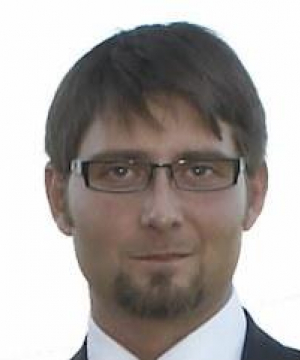Course details
At Homerton
Homerton will be looking to take six students in Psychology each year, which is quite a large number, but it brings a critical mass so that PBS students very quickly become part of a community here at Homerton.
We have a Director of Studies who is a fellow of the college, Dr David Belin, who works primarily in Behavioural Neuroscience. Dr Belin’s research is interested in the psychological, neural and cellular mechanisms whereby some individuals develop impulsive/compulsive disorders such as drug addiction or Obsessive-Compulsive Disorder.
Additionally, every year Dr Belin offers two summer internships in his lab for Homerton first and second year PBS students. This is a unique opportunity to discover the breadth and complexity of Behavioural Neuroscience and contemporary Experimental Psychology.
Also involved with the teaching for this course is Dr Aude Rauscent, bye-fellow and room tutor of the College as well as undergraduate tutor. Dr Rauscent is an electrophysiologist by training who has over 15 years of experience in Behavioural Neuroscience research and is now dedicating herself to teaching undergraduate students. Dr Rauscent is currently our supervisior for PBS1, PBS3 and PBS4.
As we have a relatively large number of PBS students, as well as those who opt to take Psychology within the Natural Sciences degree, within HSPS, or within the Education degree, there will always be those here who share your fascination with the subject, and who will come to it from a wide variety of approaches, enriching the study of psychology and behaviour in Homerton.
The Psychological and Behavioural Sciences course at Cambridge covers the full range of perspectives important to understanding behaviour, including behavioural neuroscience in animals, cognitive neuroscience in humans, neurophysiology, cognitive psychology, developmental psychology, social psychology, as well as the study of atypical development and adult psychopathology. You will also study advanced research methods, statistics, and programming to equip you to engage critically with the scientific literature and prepare you to conduct your research dissertation in the final year.
Psychology shares considerable overlap with disciplines such as anthropology, philosophy, sociology, and many others. It is also of great value in many application areas ranging, for example, from traditional clinical concerns to the design of new technologies, or from how we can best educate ourselves to the workings of the economy or criminality.
The Psychological and Behavioural Sciences Tripos is accredited by the British Psychological Society and gives access to professional courses for careers in counselling and clinical, forensic, health, sport, educational, and occupational psychology.
You will need to graduate with at least a 2:2, and pass your final year research dissertation, to achieve the ‘graduate basis for chartered membership’ of the BPS.
We are looking for students who have the academic ability and potential to succeed on the course, as well as the necessary interest in and motivation for the subject.
In order to explore PBS in more detail we would recommend the introductory reading for prospective applicants and offer holders available here. You can also find the offer holder reading list available here.
You can also explore your chosen subject through the Homerton Resources page.
Admission Assessment: Homerton will ask PBS candidates to take a 60-minute at-interview assessment, if invited for interview. You do not need to register in advance for this, and will be sent full details about the assessment if called for interview. Please note that your performance in the assessment will not be considered in isolation, but will be taken into account alongside the other elements of your application.
Assessment format:
60 minutes
In the first section, you will be asked to do ONE of the following:
- critically assess an experimental design,
- design an experiment and justify your strategy, or
- interpret data to produce a line of argument
In the second section you will be asked to discuss a specific topic in psychology, drawing upon your broad understanding of the field and using examples that you have encountered. There is no right or wrong answer, but we will be looking at how directly you answer the question, and how you build cohesive arguments.
We would advise spending 20-25 minutes on the first section and 35-40 minutes on the second section.
Written Work: There is no requirement to submit written work for PBS.
Only about 20% of psychology graduates work in psychology.
Psychology graduates are very well placed to enter a wide range of careers and further training, in areas including:
- Health and social care, e.g. social worker, youth worker, speech and language therapist
- Marketing communications, e.g. advertising executive or planner, market researcher, brand consultant, PR
- Human resource management
- Public sector, e.g. graduate Fast Streamer, social researcher
- Education, e.g. teacher, SEN specialist
- Technology development
